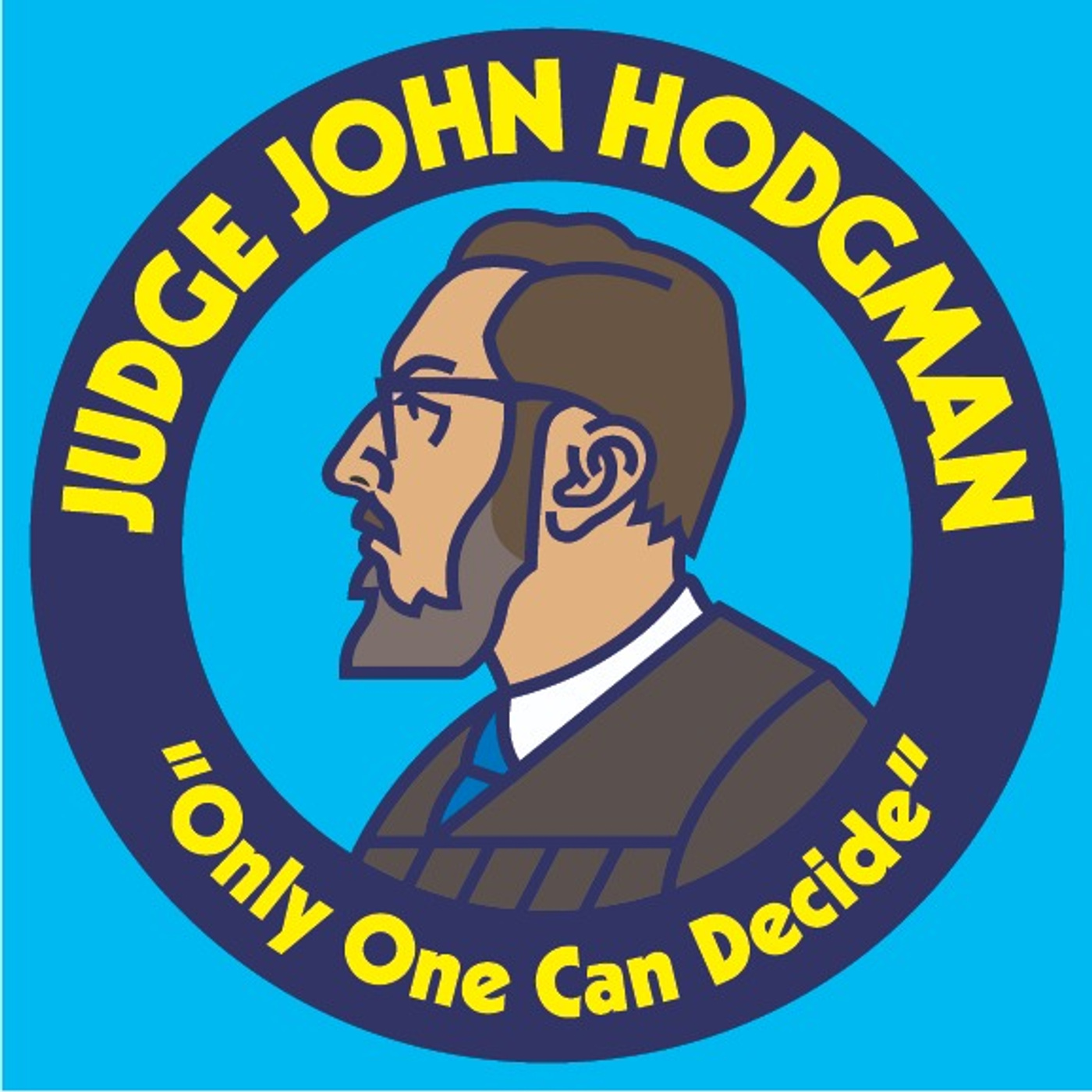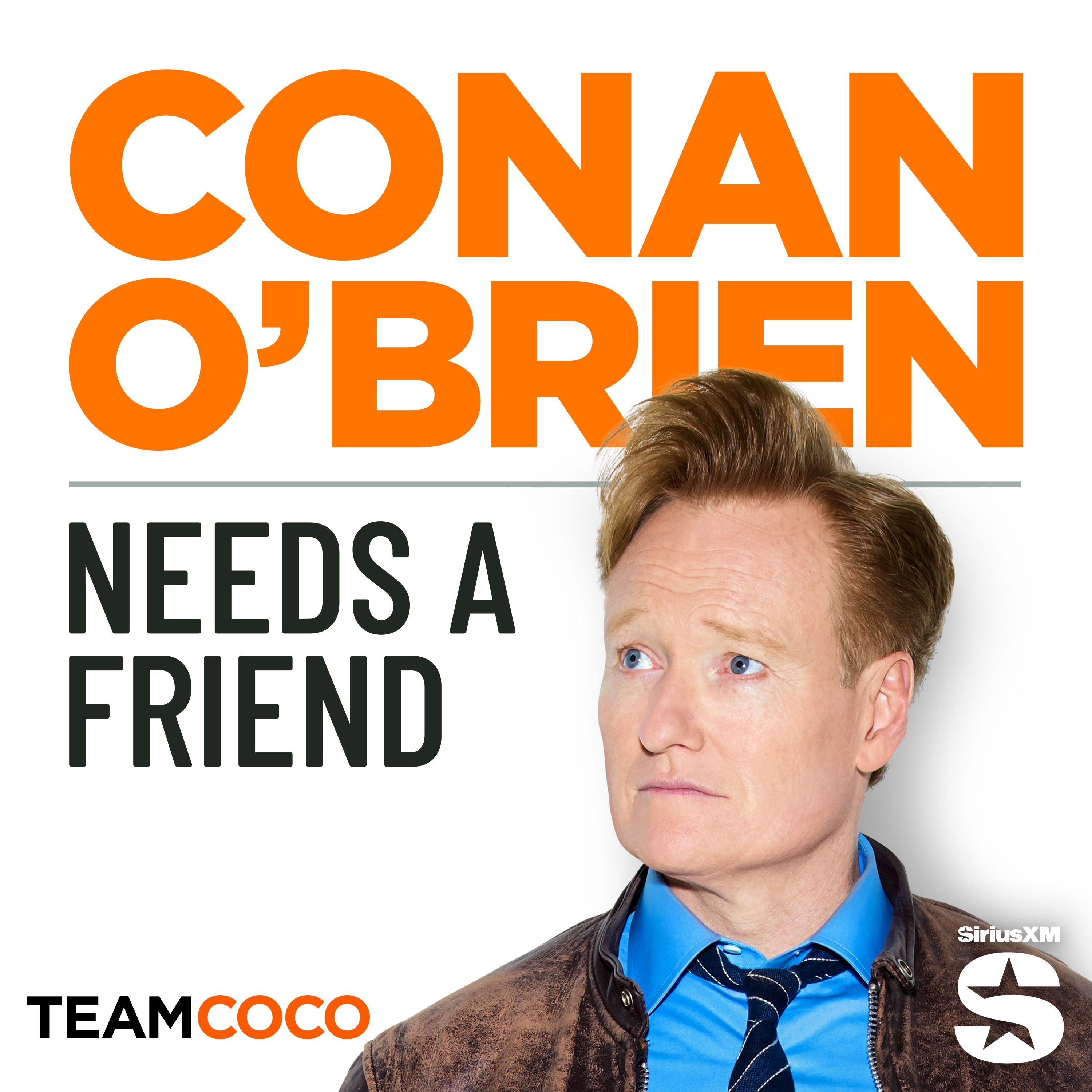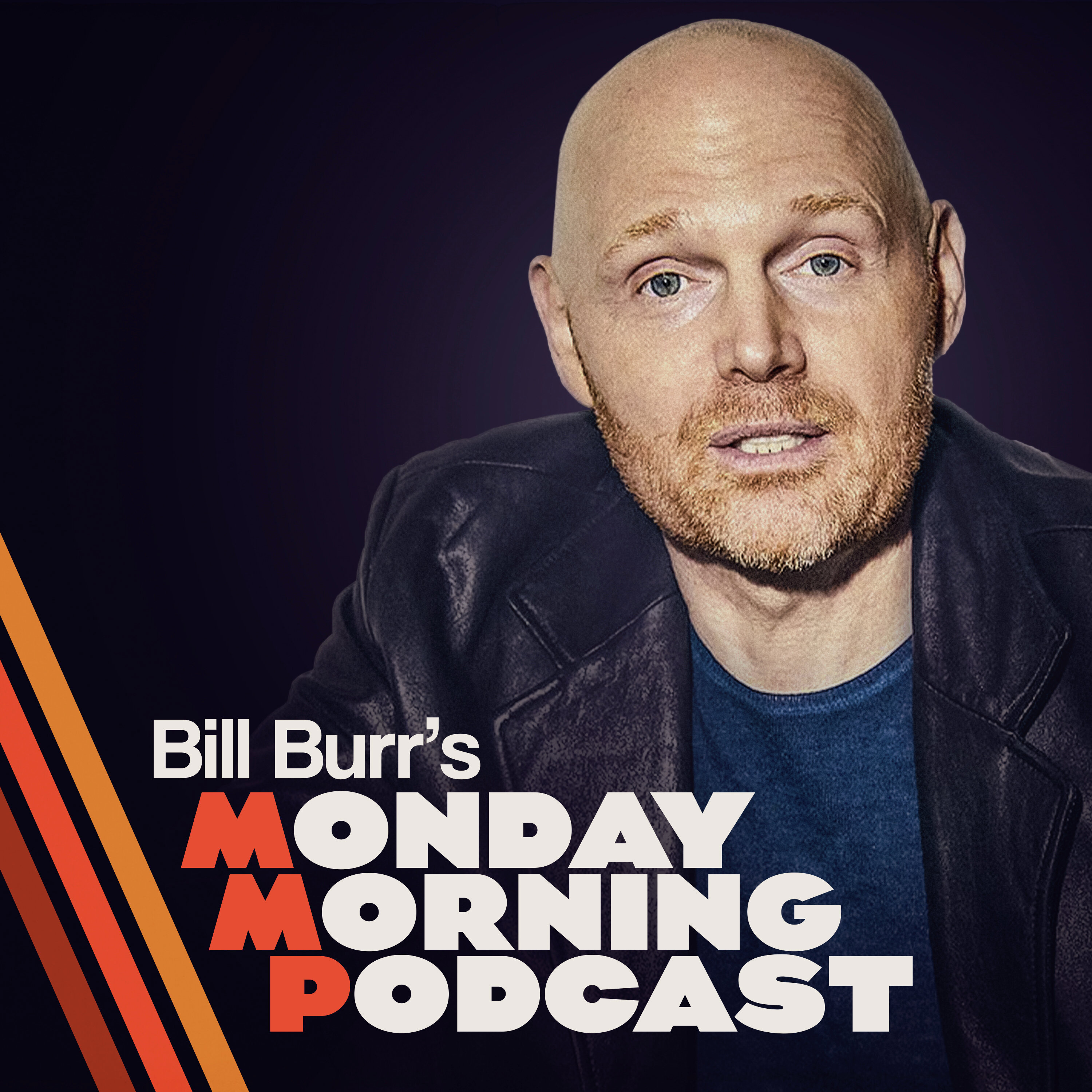
TAGQ (That's A Good Question)
TAGQ (That's A Good Question)
Time Warp Again
Use Left/Right to seek, Home/End to jump to start or end. Hold shift to jump forward or backward.
Join us as we recount memorable adventures. Our journey will take you deep into the early history of California, examining the impact of European arrivals and the gold rush on local populations and resources, setting the stage for the birth of the global mining industry.
What are the chances that you were even born? We ponder the mind-boggling one in 400 trillion odds, tracing the lineage of successful reproduction that brought us here. Our discussion will stretch your imagination with insights inspired by Ursula Le Guin, examining alternative societies through an anarchist lens. We'll challenge your understanding of time itself, comparing sequential and simultaneity theories, and reflecting on Einstein's notions of local versus global time, blending scientific rigor with philosophical musings.
Have you ever had a dream where time seemed to warp and bend? We share a vivid dream involving a bear, a tunnel, and a lake, offering a springboard into a conversation about the fluid nature of time in dreams and flow states. Movement and dance emerge as powerful metaphors for self-discovery and expression, emphasizing the importance of authenticity and self-acceptance. Finally, we talk about the complexities of building genuine relationships, the excitement of future collaborations, and our shared enthusiasm for the Timberwolves, ending on a hopeful and light-hearted note.
Thank you so uh, let's go Nice, it comes through.
Scott:Yeah, I changed. The mode I put on original sound for musicians is on Nice Noise suppression, so you can probably hear this. Then, yeah, yeah, yeah, cool noise suppression, so you can probably hear this. Then, yeah, yeah, yeah, cool, nice, cool. Thanks for being so flexible today. And just in general, this, this is the only podcast I had scheduled today so I could be flexible.
Ben:That's good, nice. Yeah, it's a slow day over here, still lots of stuff to do. But yes, hangin out friends, don't going around walking, walking through the gardens. Yeah, you're using your. Yeah, it's not things, but they're not connected right now.
Scott:Okay, there we go. I just wondered. The microphone sounds a little uh choppy on your end. How about now? Maybe just because you're leaning back, it's a lean back. I can lean forward, if you need me, to Nice painting you have on your wall there Nice couple of paintings.
Ben:Yeah, they're good. You've never seen them.
Scott:Yes, I have. You have seen them Somehow, you've just never quite been focused that way.
Ben:Well, I'm on the ground right now, I see, which actually says a lot about this new arrangement that I have. My desk is over here, but it's not very I can do stuff on it, but it's not very I can. I can do stuff on it, but it's not not ideal, because next, to my bed that's quite a squish. I redecorated the feng shui is better, at least though and you have your uh red medicine ball.
Scott:Yeah, what?
Ben:it is. Is that what they call them?
Scott:I know it's like that thing you use for exercise. That's a blow-up plastic ball, rubberish plastic ball.
Ben:Medicine balls are the heavy ones, okay, medicine sounds good sounds good. I don't know why I didn't do any preparation for this episode, not that I ever have.
Scott:Well, I just put out an old episode, so there's questions that need to be answered. All right, did you go to the guy who ran the museum in Langley and ask him about the mysterious train you know?
Ben:wait, you're jumping Great question and has the podcast begun? Has it begun?
Scott:Yes, oh, you didn't get that text about it being recorded.
Ben:No, I saw that it was recorded and then I didn't even think about it and I'm just like oh, here I am, here we are All right. No time for arrival, just whoop. Yes, all right.
Scott:Now we have an audience as we talk. One or two people might listen, listen to what we say, you know, yeah, maybe three yeah if it's a you know popular episode.
Ben:But did I end up talking to the person at the historical museum about the mysterious trend? No, I completely forgot. Okay, I completely forgot about it. Um, okay, I have a feeling if I did ask this person, but the way they have I mean, it's a small town, um historical museum. So I asked them a number of questions. To which town? Historical museum? I asked them a number of questions to which she responded Catherine was her name to which Catherine responded. You know, that's a really interesting question. Interesting question.
Scott:I'm not sure we could change the name of the podcast to that. That's a really interesting question. That's a really interesting question.
Ben:That's a really interesting question.
Scott:T-A-R-I-Q. Tariq Doesn't have a good answer, that's a really interesting question, tariq.
Ben:Tariq, no, it's not Taji.
Ben:It's like someone's first name yeah, if it was Tarik Tarek, no.
Scott:It's not quite as good as Tarek. It's like someone's first name. Yeah, if it was trick.
Ben:And then, well, you could leave the A out, and then it would be a trick. Trick, trick.
Scott/Ben:Yeah.
Ben:Yeah, catherine didn't know much about pictures from when settlers first arrived at Islay, which is really what I was hoping to go explore, because it gives you a really good idea of what the landscape was like and how it was. Yeah, what the landscape was like before white people showed up.
Scott:I started reading this Malcolm Gladwell book about Palo Alto. Oh, but he starts with the.
Scott:You know Europeans arriving on the scene and how they quickly decided like they were going to make themselves into the master class and in Palo Alto in California, but yeah, in Santa Clara, one of the ink that like there is mercury mine there and they, they're like they needed labor, but you know, there were, there weren't people yet, they were just colonizers. So they had to ha and make, make them indentured servants, pretty much the Mexicans and the natives. So it's like that's what the gold rush brought to California. First it was miners and then it brought engineers and scientists who were going to do it in an organized way. And when they got done with, you know, once they could no longer just use water to wash the gold out of the hillsides and they had to, like, do some mining, which took engineering, and then the gold rush was over. So those California breed of engineering scientists said, after they'd learned to basically indenture the local population to mine, exploit the local resources, they expanded it globally.
Ben:Once they'd done the trick, once they went and did it all over the world yeah, I see, and so that was kind of the birth of the mining industry as a whole as an exploitation, as an exploitative uh yeah, outsourced industry.
Scott:I mean, people from outside your country would come and say, hey, here we are, you work for us, we're gonna pay you this much and we're gonna sell the rest to you from the company store and like, yeah, if you fall behind in the company store, fine, we'll give you more credit. You know this, the same thing that happened to native americans in the fur trade, but this was um global, uh, mining operations well, and malcolm gladwell talks about this in his book on the first chapter.
Ben:First chapter, I see yeah, as I think it's sort of the. It's like the the origins of not just Silicon Valley.
Scott:It's going to lead to Google, facebook and Apple doing the same thing.
Ben:Right and how it became the place for disruptive industry Right.
Scott:And my own crime of making money off of real estate in Silicon Valley.
Ben:Blood money. Yeah, it's a hard world we live in. Yeah, is there money that's not blood?
Scott:money. Is that a good topic for our podcast? Maybe when when I go back and produce the podcast and it's been like I do it two episodes back, so I kind of forget what we were talking about, and if I'm captivated with the conversation after forgetting it, then I like go oh, that was good. That was good, it's a fun one.
Ben:It's a fun one. Is this a good topic for a podcast? Uh, yeah I mean, I think any topic's good so long as you know how to you know work with it.
Scott:Yeah but can you be the beneficiary of a system and be critical of it?
Ben:oh, oh boy. Oh well, I might be too tired today to really yeah, okay, that's another show, but that's, that's a, it's a good question, good question um, what are you not too tired to dive into?
Ben:No, that's the fun thing about being tired, you know, is like dive in.
Ben:anyway, I'm kind of too tired to dive into anything, so I will just do it. What am I not too tired to dive into? I have a dream pardon not too tired to say oh yeah. Well, that's a really complicated question. You know there's a lot to hmm, and leaving it at that Well, I always think that's a given. Yeah right.
Scott:It's like any question, like what does life mean? Or something. It's like well, you're not going to figure it out, You're just an experimenter in acquiring extra knowledge.
Ben:Yeah, it's always. And that's what I mean is I'm so tired that all I can do is say the given thing, it's just. Oh, you know, I think it's um you're, you're just like okay, and I don't. I don't know if I can tease apart you're just like chat GPT.
Scott:Oh, you're just producing words one after the other. Yeah, yeah I. I accused your mom of doing that once.
Ben:Told her mom, you told mom that she was just chat GPT.
Scott:And she laughed, she laughed, she got it. Okay, I, I, I mean, I am too. All of us are just producing the next token based on this predictive neural net in your head anyway.
Ben:Some people are less willing to hear it than others this is another recurring theme in the podcast yeah, it's a lot to be served up.
Scott:And we should point out that all the episode logos are generated at discordcom.
Ben:Yeah, we should actually really and using Midjourney.
Scott:Midjourney is the AI that does it. So thanks for all the people who contributed their artwork to train the mid-journey brain. I appreciate it. Oh, is that who sponsors the podcast? No, it sounded like. It sounded like a promotion.
Ben:It did. I don't know where to start with that.
Scott:The Mid Journey AI thingamabob. The. Ai journey thingamabob, which you can get at discordcom and I think they take money from you if you want to use it a lot. But you can use it for free and make your own, like you could ask for, like a picture of colorful flowers that include orange and red and yellow against a defocused green background, and you could get the painting on your wall.
Ben:If we went on Oprah next month because we ended up with 14 million monthly listeners, yeah right, how would that change our relationship with mid-journey thingamabob?
Scott:it'd still be a good, uh cost, affordable way of generating artwork for a logo for an episode.
Ben:Would anything change, though? Like would we need to?
Scott:You mean, this isn't one of those things where you get everything you want.
Ben:It's a question for a lawyer.
Scott:You get everything you want, because I'm not sure getting on Oprah was everything I wanted well, I, it's just I'm, I'm one.
Ben:I just use that as an example to say how, in terms of intellectual property and using that service, how does it change when you use it in a lot of ways, not necessarily to profit, but as a tool in your tool belt as you profit.
Scott:I mean, I think the people that use the databases are that create the databases are probably going to argue fair use. You know they're doing nothing different than an artist walking around and looking at a painting. You know, I look at that painting. Look at that painting. Look at that painting, then you go paint. I look at that painting, look at that painting. Look at that painting, then you go paint. And I think it's defendably fair use to look at stuff.
Ben:And embed it into a neural net, at least that's especially so if you're looking at millions, of things. Yeah, yeah, yeah.
Scott:And but people go, oh, you copied my style, and it's like, yeah, what?
Ben:Yeah it's hard to start from scratch.
Scott:Yeah, right, right, right right.
Ben:It's hard to have your own neural net start from scratch. I guess more of my question, too, is just the fact that we have 14 million listeners. Yeah, that means oh, it's like's like oh wow, we can actually pay for we we're doing well now, like we actually have sponsorships, we can. And so when you incorporate the art made by the ai, is there any compensation that mid-journey needs? Oh, I might, I might it's part of our ecosystem.
Ben:Go to the next pricing tier, you know, okay, instead of like, but I guess it's part of our ecosystem I might go to the next pricing tier, you know, instead of like, but I guess it's, it's so much. There would be double it yeah if, if you're a company that makes hats and you use ai to generate your marketing and branding, they're yeah, you just need to pay for the service and that's.
Scott:That's pretty, and then you have free freedom to use whatever yeah, I'm not interested in a service that, um that like hold some lean against my creativity. It's like now either I use your tool and I get the result of the process, or forget it. You know um nice well that that happened that happened with our podcast uh hosting place.
Scott:I mean, the words made it sound like if you use our AI, we'll remove it, if you ever stop paying every month for that service, and it's like no. So I wrote them an email and they said no, that's not true.
Ben:Yeah, okay.
Scott:Don't believe our words. On our webpage, we're doing the right thing. If you use a tool, the end result is yours if you paid for the use of the tool okay, well, welcome to ben and scott's podcast, where ben asks questions about the logistics of ai.
Ben:So not just ai, but uh, it's like. Well, it seems like it's a marketing meeting and the intern is asking questions no I.
Scott:I thought you were asking the question in a different way yeah, no, and it was good.
Ben:I appreciated that answer because that's actually something that I've, you know, probably talked about before, but yeah, that's, uh, that's another, it's another conversation that is divisive. For this next segment, we will talk about anything other than AI natural intelligence natural intelligence where do you find that?
Scott/Ben:where do you find that?
Ben:where do you? Where's it come from? Where did it go someone? Today I heard someone say that they read somewhere that there's a one in 400 trillion chance that any of us are born, and I just thought, like why? How do you? Against what yeah, exactly, yeah it's like I just that's like trying to find the answer to life. To me it's like what is what's the answer to life?
Scott:well, what's the probability problem? All the atoms in the universe and how many of them have a chance of being in a human? Yeah, that's pretty smart yeah.
Ben:It was either a physicist or a mystic that gave him that number. Who knows? I also think. I think we're born and that's the way it is, and here we are, and just like I'm too tired to be able to.
Scott:Just like seeds and flowers, they just are, yeah right, it's, it's a.
Ben:What does that mean? It's a one in 200 trillion chance that that flower was ever born. Maybe, I mean maybe, it's a purely biological basis. Maybe it's like you look at all of the different eggs that exist.
Scott:Well, and you have to think out of all the eggs that humans have. That's a big one, you know, if you went back to your whatever so many ancestors ago, the fact that you're alive is like you won the lottery.
Ben:Yeah, right, yeah, that must be it.
Scott:I mean go back a thousand generations and like variables involved you're the lucky person, yeah because all your parents successfully reproduced.
Ben:Yeah, all the way back to the beginning of life and a continuous line, nobody lost.
Scott:Nobody lost the whole way. But it's also true for everything else. Win, lose win, lose, win, lose, win, lose it's also true for everything else currently alive, exactly if it's alive right now.
Ben:I'm reading a book right now about anarchism by Ursula Le Guin. You know her.
Scott:No.
Ben:She's an author who writes about different human civilizations, and sometimes non-human civilizations, but at the least humanoid, and in a lot of her books she's kind of known for creating societies that are built upon different fundamental ideas of what human nature actually is, so, more or less, they have different origin stories. In a nutshell, that's a really it's a huge oversimplification of it, though, and in this book that I'm currently reading about anarchism, there's a physicist that lives in this anarchist world, and, point being, he has, he's trying to reconcile the sequential theory of time and the simultaneity theory of time, in which everything already happened, and time is just, you know, connected like a circle, or is it sequential? And it's uh. I've never I've never spent very much time with people that are super, super into math or super, super into physics, so this is kind of like Baby's first introduction, in a lot of ways, to why the movie Interstellar might even begin to make sense.
Ben:All of this to say, oh, because here we are at the present moment and all of the other living beings that we also share the world with have been right, I've been like they had. There's never been a disconnection from the beginning of life itself up till now, and now, I'm now my brain's at this place of like and some physicists. Well, I, it's a, it's a book, I don't really know, but it seems. But what is actually time?
Scott:But the one thing I'd correct is there's no universal sequence of time. There is a local sequence of time, and it's all just based on interactions. You know, things that bump into each other and that creates our you know know whether it's cosmic interactivity no, you just got. Things are happening locally, but there's just no global time. We, you, can't say that things are happening at the same instance as somewhere off in light years away oh, I see, I see there's yeah, it's so funny because for the, for the human brain, and from my conceptual understanding, I cannot even begin to fathom understanding.
Ben:I cannot even begin to fathom what that even really means.
Scott:But it was discovered a long time ago by Einstein. And it's you know, yeah. Yeah, the fact that there's local's local yeah, it doesn't mean it goes around in a circle, but the fact. It's just like you don't know anything.
Scott/Ben:Relativity is that what the theory of time is relative?
Ben:time is relative yeah I see I guess for our own like embodied experience of it too, it makes sense because when you're dreaming complete, completely different experience of time, and also when you're like in a flow state and really enjoying yourself and like just really one, with whatever it is you're doing, time changes.
Scott:Yeah yeah um, peter told me a dream before we went and visited him in la and it was like you and me and him like on a road in the woods, walking along and I'm going to forget the details, but I think I can resurrect the feeling and there's a bear coming out of the woods and there's a bear coming out of the woods and and then the bear like goes off into this tunnel and and I'm just like let's go follow the bear. And you and Peter are just like, okay, dad's going to follow this bear, let's go follow. And we come out of the tunnel and we're like in a new place and he thought we're like in the, you know, utah or something, um, by a lake, and oh yeah yeah, and the bear goes in the lake.
Scott:And boy, I'm not going to get this story right, but I remember that the high point of it, which is, and you just go after the lake, you're going to swim after the bear, that says, we got to go after the lake, you know, gonna swim after the bear.
Ben:Um, that says we gotta go after the bear, yeah.
Scott:And and then you, uh, peter can hear you screaming, which doesn't make sense because you're under the water, and then he realizes like, oh, this must be acid or something. Right, it's not really a lake. Oh, that's so I'm in pain Because he's about ready to dive in and save you, um, yeah, and then he realizes oh it's, oh, this could be acid. So he's like in there, hey, like, okay I don't know, dip a toe or something.
Scott:Well, that's what he does, he does, he sticks his foot in so you can grab it, oh nice. And then he realizes that it's just water. I was just screaming. Nobody knew why we could hear you yelling?
Ben:I don't know why you're yelling the bear didn't get me.
Scott:Yeah, everything was fine, but it was like your brother was willing in his dream to lose his foot to save you.
Ben:Yeah, he gives a foot about me.
Scott:I don't know if I should be podcasting. I don't know if I should be podcasting that. Don't tell him. He won't hear about it for years.
Ben:I think, of all the dreams to share this with, probably the least, it was positive yeah.
Scott:I don't know what I was doing. I just had drifted off in the dream. I was just like hey, here we are in a new place.
Ben:You were the one that got us to go after the bear in the first place. Yeah, yeah, yeah, yeah yeah.
Scott:So did we have a good question well, did you?
Ben:yeah? I mean, yeah, alright, probably somewhere in there there was a question or two that was alright, what is time, what is somewhere in there? There was a question, too, that was alright, what is time, what is time? You had a pretty good answer for it what is time?
Scott:Time is nature's way, or the universe's way, of making sure everything doesn't happen at once?
Ben:Sounds like a teleological fallacy of some sort. I feel like you're assuming that that matters Whether or not it all happens at once.
Scott:I don't know. Well, if you can't tell the difference between two things, then yeah, how do you know? How do you know they didn't happen at the same time?
Ben:um so, theory of relativity. I'm just out here trying to stay nourished and sometimes thinking about time helps, sometimes it doesn't. Sometimes you got it Most of the time, it's just about dancing and singing. Some days are better than others. It's always about meeting myself right where I'm at.
Scott:How's the dancing going?
Ben:Oh, it's good, it's good. Dancing is good. Today I've been a little groggy, so the dancing this morning was a little groggy, do you?
Scott:ever fall on the ground dancing.
Ben:Not often I do it on purpose, though. Yeah, my style of dancing is great. Yeah, I really like experimenting with what it's like to push myself over. Pretend like my hip is super, super heavy and see what it's like to like have my left, the left side of my hip become extra heavy and then just like let it take me to the ground, or then my shoulder gets super, super heavy and I try to try to catch myself as it falls to the ground. It's a really good way of just practicing movement and growing neural connections and things, teaching your body how to balance in a really dynamic sort of way. Dancing is good. Yeah, keep finding flow with it. There are a lot of days where I'm like, oh gosh, it's scary, I don't want to have to go, let's go do this tired and then, almost without fail, that ends up making me feel better than I did before. Yeah, yeah. Yeah.
Scott:I had a hard time finding flow today, but a lot of it's done, Right it's it's kind of like making this podcast because you're committing to some improv done with your body that um others might observe.
Ben:Yeah, and like or not, like you know and the important thing is that, like I doesn't really matter if other people like it or don't like it, I'm my own cup of tea, at least I'm trying to be. I've had a song on repeat recently, but not being everyone's cup of tea takes a lot of practice, right not everyone's your audience.
Scott:And what's the other thing, or not everyone's your cup of tea? And if you're pleasing everyone, then you're probably not saying it and if you feel like you stand out in a crowd, then well, good for you. You're like use it. It's like oh, I'm the most of this person here. It's like okay.
Ben:When you like, you know there's the whole cliche of like, just be yourself. But when you really find out how to be yourself, you become incredibly magnetic. And there are a lot of people that won't be into it, but for the people that really matter and the people that you're really vibe with, you will become magnetic. And I've seen it in my own life and how I ebb and flow out of being able to like, really be myself and really getting caught in my head and then the more and more often I find myself just really living from the heart. It's like whoa, like I'm really attracting some magnificent people in my life okay, I'll try.
Scott:I yeah, I'll try to take you.
Ben:Yeah, try to be yourself Wasn't born this way. Another part of that song about not being everyone's cup of tea is that I spent my most of my life just trying to please.
Scott:Right and they wanted Oolong. They didn't want Jasmine Won't want oolong. They didn't want jasmine.
Ben:They wanted oolong. I'm not either of those. I've tried being jasmine for a while and I'm finding out that I'm probably just roasted barley tea.
Scott:English breakfast.
Ben:And then maybe they like there's yeah, like roasted barley tea with a little bit of English breakfast. It's weird, you know, we'll get along with everyone people that are really there and down to sip it for a while. Explore it. Yeah, it takes a while for it to like come out. Yeah, anyways, alright, there were good questions in there. Yeah, yeah, yeah, anyways, all right, there were, there were good questions in there.
Scott/Ben:Yeah, great, great.
Scott:All right, we'll have to do this again next time. Have your people get in touch with my people.
Ben:Yeah, yeah, this was good, this was good. I think this could really go somewhere.
Scott:Yeah, yeah, you're going to be got a good ball club Gave 110% this year.
Ben:Oprah will give us a call soon, I'm sure. Oh and the.
Scott:Timberwolves are playing.
Ben:Alright well let's get off of this.
Scott:Let's go watch. Go, go Go Minnesota, go Tim.
Scott/Ben:Where do you find that? Where do you find that? Anyways, where do you find that? Where do you find that? Yeah, anyways, where do you find that? Where do you find that? Yeah, anyways, where do you find that? Where do you find that?
Ben:And Bye.
Podcasts we love
Check out these other fine podcasts recommended by us, not an algorithm.

Judge John Hodgman
John Hodgman and Maximum Fun
Conan O’Brien Needs A Friend
Team Coco & Earwolf
E Pluribus Motto
John Hodgman and Janet Varney
I, Podius
Maximum Fun
Jordan, Jesse, GO!
MaximumFun.org
Secretly Incredibly Fascinating
Alex Schmidt
Monday Morning Podcast
All Things Comedy
WTF with Marc Maron Podcast
Marc Maron
